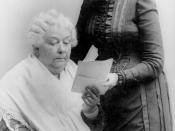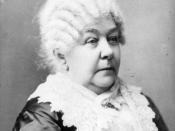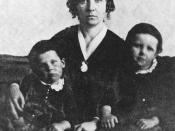The main theme of the nineteenth century is definitely political movement and revolution (seeing that one leads to the other). Huge steps forward were made during the nineteenth century. One of the events that started this century off on the right foot was the French Revolution. It took a lot of brutal killing, but in the end it had far-reaching results. The bourgeois and landowning classes came to be the dominant power. Another was the Women's Rights Movement, which had been put off for far too long. The nineteenth century was a defining epoch in modern history; a stepping stone to make our world a more equal and fair place to live.
The French Revolution was one of the most influential and significant events in modern history. Wasteful government spending and abuse of power sparked the series of events that led up to the revolution beginning in 1789 with the Storming of the Bastille.
The despotic power of the king was absolutely supreme; everything was done by the authority of the king's council. The States-General, a parliament containing all classes but the French peasantry, had not met since 1614. Their job was not getting done, and it was a great factor in the uprising of the French people. The privileged classes (members of the church and nobility) owned one-fifth of the country's land, and weren't required to pay taxes. The peasants were required, and they could hardly afford to. The church even controlled the press, and this was disconcerting to the citizens of France. Voltaire and Rousseau were household names in this era, and their words provoked the already angry lower-class French. The teachings and criticisms of Voltaire showed the faults of the Church and State under the Ancien Régime. Rousseau's Social Contract asserted that, "Man was born free,


